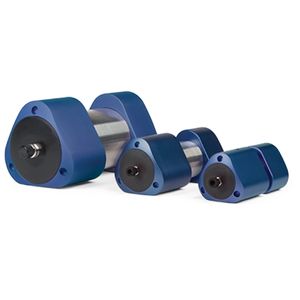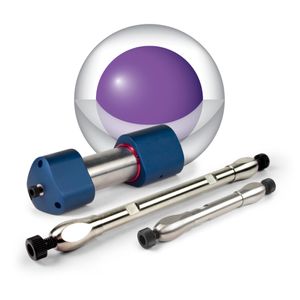Santa Cruz Biotechnology is a world leader in the development of products for the biomedical research market. Over the past 30+ years, the Company has focused on the ongoing development of research antibodies, siRNA and CRISPR Gene editing tools, biochemicals, labware and more recently has expanded into animal health care products. Santa Cruz Biotechnology has the highest commitment to quality and customer service.

DNA-PKCS (G-4) PE | Santa Cruz Biotechnology
mouse monoclonal IgG1; DNA-PKCS Antibody (G-4) is an IgG1 κ mouse monoclonal DNA-PKCS antibody (also designated PRKDC antibody, HYRC antibody or DNA-PK catalytic subunit (DNPK1) antibody) that detects the DNA-PKCS protein of human origin by WB, IP, IF and ELISA. DNA-PKCS Antibody (G-4) is available as both the non-conjugated anti-DNA-PKCS antibody form, as well as multiple conjugated forms of anti-DNA-PKCS antibody, including agarose, HRP, PE, FITC and multiple Alexa Fluor® conjugates. The phosphatidylinositol kinase (PIK) family members fall into two distinct subgroups. The first subgroup contains proteins such as the PI 3- and PI 4-kinases and the second group comprises the PIK-related kinases. The PIK-related kinases include Atm, DNA-PKCS and FRAP. These proteins have in common a region of homology at their carboxy termini that is not present in the PI 3- and PI 4-kinases. The Atm gene is mutated in the autosomal recessive disorder ataxia telangiectasia (AT) that is characterized by cerebellar degeneration (ataxia) and the appearance of dilated blood vessels (telangiectases) in the conjunctivae of the eyes. AT cells are hypersensitive to ionizing radiation, impaired in mediating the inhibition of DNA synthesis and they display delays in p53 induction. DNA-PK is a heterotrimeric DNA binding enzyme that is composed of a large subunit, DNA-PKCS, and two smaller subunits collectively known as Ku. The loss of DNA-PK leads to defects in DSB repair and V(D)J recombination. FRAP can autophosphorylate on serine and bind to rapamycin/FKBP. FRAP is also an upstream regulator of S6 kinase and has been implicated in the regulation of p27 and p21 expression.



























































